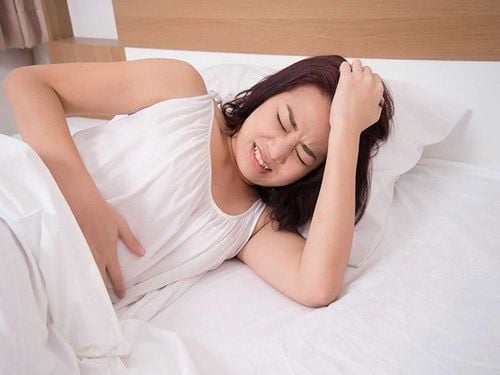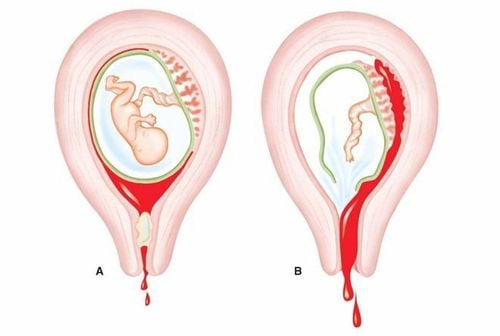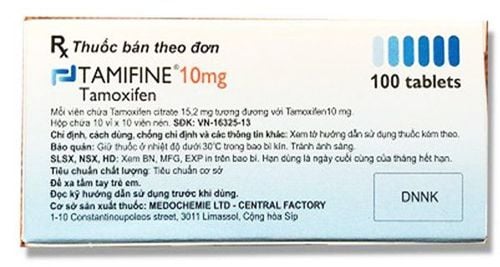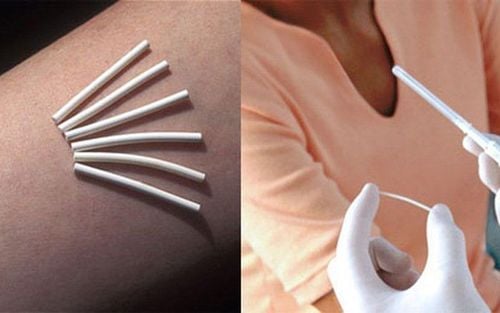This is an automatically translated article.
The article was professionally consulted by BSCKII Nguyen Thi Minh Tuyet - Head of Obstetrics and Gynecology Department, Vinmec Central Park International General Hospital.Menstrual disorders are a common phenomenon in many women, of all ages. For women who are expecting a baby but have menstrual disorders, it can be significantly affected. So when this situation occurs, what do you need to do to not affect your health and your plan to have a baby?
1. What is menstrual disorder Menstruation is bleeding from the uterus to the vagina due to the shedding of the uterine lining when conception does not occur. Menstrual disorders or menstrual irregularities are abnormal manifestations of menstruation in terms of time (menorrhagia, oligomenorrhea, amenorrhea), frequency and amount of blood loss during menstruation (hypermenorrhea) accompanied by other abnormalities. often such as color change of menstrual blood, dysmenorrhea (severe abdominal pain during menstruation),... The cause may be due to endocrine disorders or physical diseases. These are signs and symptoms of one or more different diseases, and menstrual disorders are not the disease itself.
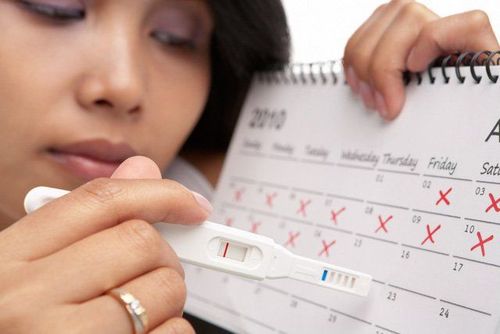
2. Causes of menstrual disorders 2.1 Physiological reasons Hormonal changes
During her reproductive period, a woman has to go through many stages from menstruation, pregnancy, breastfeeding. , perimenopause to menopause. These changes go hand in hand with hormonal changes in the body.
Puberty : When they first get their period, most girls have irregular periods because the ovaries and other sex organs are not fully developed yet. New hormones released in the body take a while to stabilize. It usually takes the first 2 or 3 years for your period to be irregular. Breast-feeding: Prolactin is the hormone responsible for the secretion of breast milk. Prolactin suppresses the ovaries, reducing levels of the female hormone estrogen, which can cause amenorrhea. The menstrual cycle will reappear later and it will take some time for the period to return to normal as before. Before perimenopause: Female hormone levels decline due to decreased ovarian activity (ovulatory disorder), disorder and aging of the body, so the menstrual cycle is disrupted and leads to menstrual disorders. Weight gain or loss
Sudden weight changes also lead to menstrual disorders because fluctuations in a woman's weight can affect the pituitary gland, thereby creating a hormone imbalance, causing disorders Ovulation cycle leads to menstrual irregularities.
Eating disorders
Improper diet and nutrition, use of stimulants (tobacco, coffee),... changes hormone levels and adversely affects the body such as disorders Digest . From there, it causes fatigue, dehydration, rapid pulse, low blood pressure, ... which directly affects the menstrual cycle.
Excessive exercise
Excessive exercise consumes a lot of energy, changes the normal functioning of the organs in the body, so it also causes menstrual disorders, which can cause secondary amenorrhea. Stress - stress
Stress, illness for many days, stress, ... will cause the adrenal gland to secrete the hormone cortisol. This hormone affects the production of female hormones such as estrogen and progesterone. These two hormones are responsible for regulating your period.
Poor hygiene
During menstruation and after sex, you should clean your body, especially the private area. Change tampons regularly, every 3-4 hours, you should change tampons once to limit the growth of bacteria, causing gynecological infections.
Side effects of the drug
Birth control pills change female hormones, causing menstrual disorders. Long-term, high-dose antibiotics or hormonal drugs can also lead to menstrual irregularities.
Trắc nghiệm: Sự hiểu biết của bạn về kinh nguyệt
Kinh nguyệt có vai trò quan trọng đối với sức khỏe sinh sản, do đó nữ giới cần chủ động trang bị kiến thức để theo dõi và kiểm soát tình trạng sức khỏe. Bài trắc nghiệm sau đây sẽ giúp bạn hiểu hơn về chu kỳ kinh nguyệt của bản thân.2.2 Due to pathology Thyroid disorders Thyroid disorders affect the metabolic rate in the body, change hormones and menstrual cycle, can cause secondary amenorrhea. Polycystic ovary syndrome (PCOS) Ovaries do not ovulate, affecting the amount of progesterone, causing an imbalance in the estrogen-progesterone ratio in the body, affecting the endometrium, causing the endometrial layer to shed. → bleeding. If this happens, a woman doesn't have a real period because ovulation is irregular.
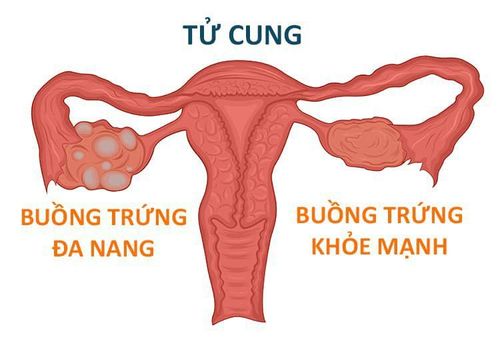
Premature Ovarian Failure: A condition in which the ovaries lose function before the age of 40. Women with premature ovarian failure may have irregular or irregular periods for many years.
3. Can menstrual irregularities get pregnant? Menstrual disorders depending on the cause can still be pregnant. However, patients need to see a specialist for proper advice and treatment.
4. Remedy 4.1 Due to physiology Diet
Drink enough 2 liters of water per day. A well-balanced, nutritious diet with a diet rich in vitamins and minerals: Eat plenty of whole grains, fresh fruits and vegetables, and avoid saturated fats and fast foods. Before the expected period, should not eat spicy food, fried food, fried food, food with a lot of solder. For people with weak physical condition, it is recommended to strengthen the body's nutritional supplements, eat a variety of poultry meat, drink milk. Avoid using alcohol, stimulants such as coffee, tea... do not smoke and stay away from places with smoke. Lifestyle mode
Get enough sleep, avoid staying up late. Gentle, regular exercise such as: Walking, yoga, aerobics, aerobics, ...

Do not do sports or vigorous exercise during menstrual days. Keep your belly warm to avoid catching a cold: Placing a warm pad on your abdomen or soaking in a hot tub can help relieve menstrual cramps. Clean the vaginal area. Healthy sex. Mental and psychological
Optimistic spirit, love life, fun. Learn how to adjust your psychology, find ways to relieve your mind when you encounter unhappy things, do not let emotions dominate too much. Have a good mentality in all situations and circumstances that occur in life. 4.2 Due to illness Periodic check-ups to monitor and protect your own health. Regular health check-ups not only prevent menstrual disorders but also many other diseases. Irregular menstruation is a phenomenon that directly affects conception. Therefore, you should not be subjective but should go to the doctor and solve the above situation completely. Because this can be a sign of some dangerous gynecological diseases that directly affect the fertility as well as the life of women. If you are expecting a baby but have menstrual irregularities, do not hesitate, visit an obstetrician or fertility specialist for advice on treatment methods to quickly achieve your satisfaction. You can consult and choose the basic gynecological examination and screening package at Vinmec.
With modern and advanced equipment and a team of professional doctors, Vinmec Hospital will examine and offer the most optimal treatment regimen for you.
Please dial HOTLINE for more information or register for an appointment HERE. Download MyVinmec app to make appointments faster and to manage your bookings easily.






